Today Current Affairs: 13th May 2022 for UPSC IAS exams, State PSC exams, SSC CGL, State SSC, RRB, Railways, Banking Exam & IBPS, etc
Table of Contents
What Is Tomato Flu?

Tamil Nadu has ramped up surveillance at its borders in the wake of “tomato flu” cases being detected in Kerala.
- The flu gets its name because of the red blister it causes.
- The flu affects children below five years of age.
- The symptoms of this flu, also called Tomato fever, include rashes, skin irritation and dehydration.
- The flu can also cause tiredness, joint pain, stomach cramps, nausea, vomiting, diarrhoea, coughing, sneezing, runny nose, high fever, and body ache. In some cases, it may also change the colour of the legs and the hands.
- This flu is a self-limiting one and there is no specific drug for this. This means that the symptoms will resolve overtime on their own if supportive care is given.
- Like other cases of flu, tomato fever is also contagious.
- If someone is infected with this flu, they need to be kept in isolation as this could spread rapidly from one person to another.
- It is essential to prevent children from scratching the blisters caused by the flu.
- Proper rest and hygiene is also advised.
- Utensils, clothes and other items used by the infected persons must be sanitised to prevent the flu from spreading.
- Fluid intake would also help counteract dehydration.
Global Annual To Decadal Climate Update Report:
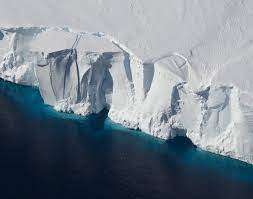
According to the global annual to decadal climate update report issued by the World Meteorological Organisation (WMO), India could be among the few regions globally where below normal temperatures have been predicted for the year 2022 and the next four years.
- The year 2022 will be cooler (compared to the 1991 – 2020 average) over India, along with Alaska and Canada.
- The annual update harnesses the expertise of internationally acclaimed climate scientists and the best prediction systems from leading climate centres around the world to produce actionable information for decision-makers.
Major Findings:
- Temperature above 1.5°C: There is a 50:50 chance of the annual average global temperature temporarily reaching 1.5°C above the pre-industrial level for at least one of the next five years.
- Warmest Year: There is a 93% likelihood of at least one year between 2022-2026 becoming the warmest on record and dislodging 2016 from the top ranking.
- The chance of the five-year average for 2022-2026 being higher than the last five years (2017-2021) is also 93%.
- La Nina and El Nino Events: Back-to-back La Niña events at the start and end of 2021 had a cooling effect on global temperatures, but this is only temporary and does not reverse the long-term global warming trend.
- Any development of an El Niño event would immediately fuel temperatures, as it did in 2016, which is until now the warmest year on record.
- Predicted precipitation patterns for the November to March 2022/23-2026/27 average, compared to the 1991-2020 average, suggest increased precipitation in the tropics and reduced precipitation in the subtropics, consistent with the patterns expected from climate warming.
- India Specific Findings :
- One of the primary reasons for the lowering of temperatures over India from next year is the possible increase in rainfall activity in this decade.
- As per the India Meteorological Department (IMD), the Indian monsoon will soon enter a positive period after remaining in a negative period since 1971.
- Many parts of India will receive above-normal rainfall. This will keep temperatures low.
- The future trend suggests that the decadal mean value will be close to near normal from 2021 to 2030.
- It will then turn positive, the decade 2031-2040 will be the beginning of a wet period.
Foreign Contribution (Regulation) Act, 2010:

Representatives of NGOs, middlemen and public servants of Foreign Contribution Regulation Act (FCRA) division of MHA were recently arrested by the CBI for committing violations of FCRA provisions and facilitating illegal clearances in lieu of bribes”.
- FCRA clearances have been a fraught issue for several years, and the government has often been accused of targetting NGOs for political or ideological reasons by cancelling or not renewing their clearances.
- The registrations of about 5,900 NGOs had ceased to be active after December 31, 2021, owing to either the NGOs not applying for renewal before the due date, or the MHA refusing their renewal for alleged violation of the FCRA.
- FCRA regulates foreign donations and ensures that such contributions do not adversely affect the internal security of the country.
- The Act, first enacted in 1976 was amended in the year 2010 and then 2020.
- Section 5 of the Foreign Contribution (Regulation) Act, 2010 gives the Union government “unchecked and unbridled powers” to declare an organisation as being one of political nature and deny it access to funds from sources abroad.
- FCRA is implemented by the Ministry of Home Affairs.
- The provisions of the Act apply to the territory of India, to citizens of India who may be outside India and to companies or their branches outside India that are registered or incorporated in India.
- The entities covered by the Act include an individual, a Hindu undivided family, an association, or a registered company.
- Once granted, FCRA registration is valid for five years.
- NGOs are expected to apply for renewal within six months of the date of expiry of registration.
- In case of failure to apply for renewal, the registration is deemed to have expired, and the NGO is no longer entitled to receive foreign funds or utilise its existing funds without permission from the ministry.
Mission Amrit Sarovar:
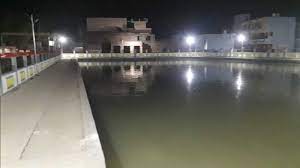
With a view to conserve water for the future, the Prime Minister launched a new Mission on Amrit Sarovar on 24th April 2022.
- The Mission is aimed at developing and rejuvenating 75 water bodies in each district of the country as a part of celebration of Azadi ka Amrit Mahotsav.
- The Mission Amrit Sarovar is to be completed by 15th August 2023.
- In total, it would lead to creation of 50,000 water bodies of a size of about an Acre or more with a water holding capacity of 10,000 cubic meter.
- This Mission has been launched with a whole of Government Approach in which following Ministries/Department are involved: Dept of Rural Development , Department of land resources, Department of Drinking Water and Sanitation, Department of Water resources, Ministry of Panchayati Raj and Ministry of Environment.
- Also Bhaskaracharya National Institute for Space Application and Geo-informatics(BISAG-N) has been engaged as Technical partner for the Mission.
- The Mission works through the States and Districts, through refocusing of various schemes such as Mahatma Gandhi NREGS, XV Finance Commission Grants, PMKSY sub schemes such as Watershed Development Component, Har Khet Ko Pani besides States’ own schemes.
Association Of Asian Election Authorities (AAEA):
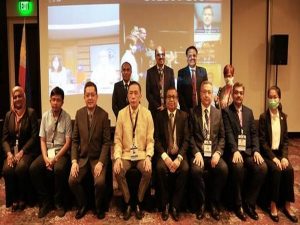
India has been unanimously elected as the new Chair of the Association of Asian Election Authorities (AAEA) for 2022-2024 at the recently held meeting of the Executive board and General Assembly at Manila, Philippines on May 7, 2022.
- Commission on Elections, Manila was the current chair of AAEA.
- The new member in the Executive Board now includes Russia, Uzbekistan, Sri Lanka, Maldives, Taiwan and Philippines.
- In pursuance of the resolution passed by participants of the Symposium on Asian Elections in the Twenty First Century held from January 26-29, 1997 in Manila, Philippines, the Association of Asian Election Authorities (AAEA) was established in 1998.
- Currently 20 Asian EMBs are members of AAEA.
- Election commission of India (ECI) is a founder member EMB of the AAEA and also served on the Executive Board of the AAEA as the Vice Chair during 2011-13 and Chair during 2014-16.
- The mission of the Association of Asian Election Authorities is to provide a non-partisan forum in the Asian region for sharing experiences and best practices among election authorities.
- AAEA is also an Associate Member of the 118 member Association of World Election Bodies (A-WEB).
National Technology Day 2022 : Theme
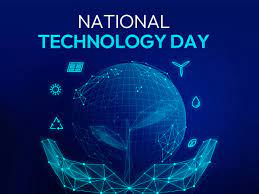
Since 1999, May 11 is celebrated as National Technology Day to mark India’s technological advancements.
- The theme of Year 2022 is: “Integrated Approach in Science and Technology for a Sustainable Future”.
Significance of the day:
- On May 11, 1998, India detonated three nuclear bombs in the Indian Army’s Pokhran Test Range.
- Dr APJ Abdul Kalam lead the Indian team of scientists to successfully test-fire the Shakti-1 nuclear missile at Rajasthan’s Pokhran test range.
- Two days later, the country successfully tested two more nuclear weapons as a part of the same Pokhran-II/Operation Shakti initiative.
- After these tests Prime Minister Atal Bihari Vajpayee declared India a nuclear state, making it the sixth country to join the ‘nuclear club’ of nations.
- Hansa 3, India’s first indigenous aircraft was first tested on the same day in 1998 in Bangalore.
- Successful test firing of Trishul, a short range missile made in India, was also done on the same day.
- On the occasion of National Technology day, TDB hosts scientific-technology based webinars and felicitate individuals for excellent works in the field of Science and Technology every year.
- Established in 1996, TDB is a statutory body that works under the Department of Science and Technology, GOI.
- It also provides financial assistance for concerns of Indian industries and other agencies for commercialization of indigenized technologies or adoption of imported technologies for wider domestic applications.
InSight Mars Lander Detected The Largest Quake On Another Planet : NASA

NASA has reported that on May 4, its InSight Mars lander detected the largest quake ever observed on another planet.
- The rover first landed on Mars in November 2018, and has since heard 1,313 quakes.
- On Earth, quakes are caused by shifts in tectonic plates.
- Mars, however, does not have tectonic plates, and its crust is a giant plate.
- Therefore, ‘marsquakes’ are caused due to stresses that cause rock fractures or faults in its crust.
About InSight Mission:
- InSight is part of NASA’s Discovery Program.
- It will be the first mission to peer deep beneath the Martian surface, studying the planet’s interior by measuring its heat output and listening for marsquakes, which are seismic events similar to earthquakes on Earth.
- It will use the seismic waves generated by marsquakes to develop a map of the planet’s deep interior.
- The findings of Mars’ formation will help better understand how other rocky planets, including Earth, were and are created.
- InSight would delve deep beneath the surface of Mars, detecting the fingerprints of the processes of terrestrial planet formation, as well as measuring the planet’s “vital signs”: Its “pulse” (seismology), “temperature” (heat flow probe), and “reflexes” (precision tracking).
The Drought In Numbers, 2022 Report:
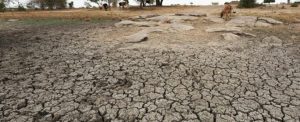
The Drought in Numbers, 2022 report was released on May 11 at the ongoing 15th Conference of Parties (CoP15) to the United Nations Convention to Combat Desertification (UNCCD).
- The latest assessment analysed droughts and impacts on life and livelihood over 122 years covering 196 countries.
Highlights of the Report:
- The frequency and duration of drought is increasing at an alarming rate across the world since the onset of the 21st century.
- An entire new generation is growing up being “water scarce”.
- Since 2000, there has been a 29 per cent increase in frequency and duration of droughts in the world.
- Drought is considered a slow onset disaster, thus giving enough time to prepare for it. But in recent decades, drought has emerged as one of the biggest drivers of human life loss and economic loss among weather-related disasters.
- India has featured in the assessment as one of severely drought-impacted countries. Nearly two-thirds of the country suffered drought during 2020-2022.
- Geographically, India’s drought vulnerability compares with that of sub-Saharan Africa.
- The effect of severe droughts was estimated to have reduced India’s gross domestic product by 2-5 per cent over the 20 years from 1998-2017.
Island Coastal Zone Regulation (ICRZ), 2019:
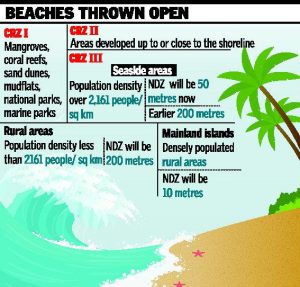
The Ministry of Environment, Forest and Climate Change has approved an exemption to the laws governing the regulation of coastal zones and has paved the way for gas-powered plants to be set up at Andaman and Nicobar islands.
- A 50 MW Liquefied Natural Gas(LNG)-based power project will be commissioned at Hope Town, Port Blair. It will be a dual-fuel power plant—that runs on both diesel and LNG.
- The plant will be developed by the National Thermal Power Corporation(NTPC).
- Activists say, this permission violates the Island Coastal Zone Regulation (ICRZ), 2019, which limits infrastructure development on vulnerable coastal stretches.
ICRZ:
- In 2019, the Government of India notified the Island Coastal Zone Regulation(ICRZ).
- It declared certain coastal stretches as ‘Coastal Regulation Zone’ and imposed restrictions on setting up and expanding industries, operations and processes within such protected zones.
- In 2021 National Coastal Zone Management Authority(NCZMA) recommended amending the ICRZ rules to allow gas-based power plants within the Island Coastal Regulation Zone area only in islands with geographical areas greater than 100 sq. km.
- This was needed to meet the energy requirement of the islanders while reducing the dependency on highly polluting sources such as conventional Diesel Generator(DG) sets.
- Accepting these recommendations, the Government of India amended the ICRZ rules.
Centre Of Excellence For Khadi (CoEK):

Khadi and Village Industries Commission has collaborated with National Institute of Fashion Technology (NIFT) to set up Centre of Excellence for Khadi (CoEK). Khadi and Village Industries Commission has collaborated with National Institute of Fashion Technology (NIFT) to set up Centre of Excellence for Khadi (CoEK).
- The CoEK hub in New Delhi and its spokes in Gandhinagar, Shillong, Kolkata and Bengaluru were inaugurated by Union Minister of MSME, Shri Narayan Rane, at NIFT Campus in New Delhi .
- An MoU, for setting up of CoEK, was signed between KVIC and NIFT last year and the project will be implemented over a period of 3 years.
- The CoEK will work to introduce the latest designs and adopt processes of international standards to create new fabrics and clothing as per the needs of the domestic and global buyers.
- The CoEK will also contribute to branding and publicity, visual merchandising and packaging for new Khadi products and increasing the global reach of Khadi by organizing Khadi Fashion shows and exhibitions in India and abroad.
Marital Rape:

Two judges of the Delhi High Court gave a split verdict on the question of criminalising rape within marriage, leaving the law unchanged.
- Justice Rajiv Shakdher, who headed the Bench, struck down as unconstitutional the exception to Section 375 of the Indian Penal Code, which says that sexual intercourse by a man with his wife aged 18 and above is not rape even if it is without her consent.
- The right to withdraw consent at any given point in time forms the core of the woman’s right to life and liberty which encompasses her right to protect her physical and mental being,” Justice Shakdher said, calling for a change in the 162-year-old law.
- However, Justice C. Hari Shankar rejected the plea to criminalise marital rape noting that any change in the law has to be carried out by the legislature since the issue requires consideration of social, cultural and legal aspects.
- In India, marital rape is not defined in law.
- The High Court’s verdict came on a bunch of petitions, including by NGO RIT Foundation, the AIDWA and a marital rape victim.
Pardoning Power Of Governor:

A claim by the Centre that the President, and not the Tamil Nadu Governor, has “exclusive power” to decide on the plea for pardon by the Rajiv Gandhi assassination convict A.G. Perarivalan drew flak from the Supreme Court before it reserved the case for judgment.
- A three-judge Bench said the government’s argument, if taken on face value, would leave Article 161 (the constitutional power of Governors of States to grant pardon) a “dead letter”.
- The court said then by the Centre’s logic, every murder case convict would have to move the President for pardon.
- Article 161 of Indian constitution: The Governor of a State shall have the power to grant pardons, reprieves, respites or remissions of punishment or to suspend, remit or commute the sentence of any person convicted of any offence against any law relating to a matter to which the executive power of the State extends.
Section 124A (sedition) Of The Indian Penal Code:

The Supreme Court suspended pending criminal trials and court proceedings under Section 124A (sedition) of the Indian Penal Code, while allowing the Union of India to reconsider the British-era law.
- All pending trials, appeals and proceedings with respect to the charge framed under Section 124A of the IPC be kept in abeyance,” a three-judge Bench ordered.
- It was argued in court that nearly 13,000 people were already in jail under the sedition provision.
- The court also made it clear that it “hopes and expects” the Centre and States to restrain from registering FIRs, continuing investigations or take coercive measures under Section 124A while the “reconsideration” of the colonial provision was on.
- Adding a fail-safe to protect civil liberties against any future misuse of Section 124A while it was under the Union’s microscope, the court ordered that the persons accused in fresh cases were free to approach courts.
- The court, meanwhile, gave the Union of India liberty to issue a directive to States and authorities to prevent the continued misuse of the sedition law.




